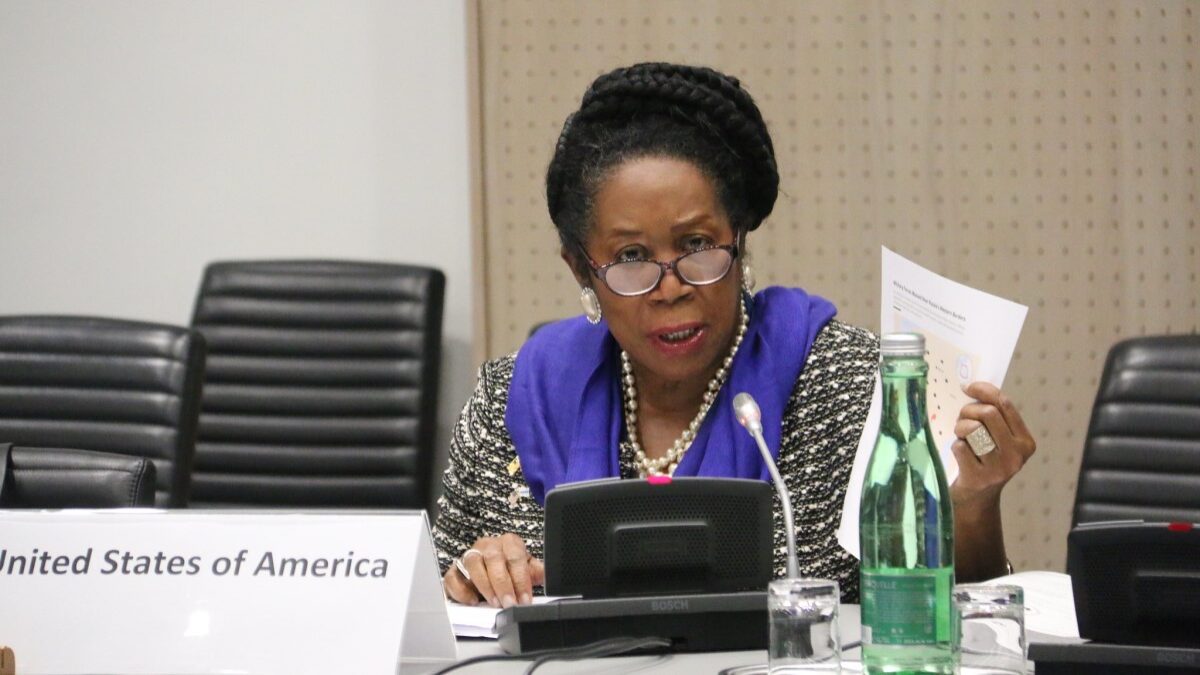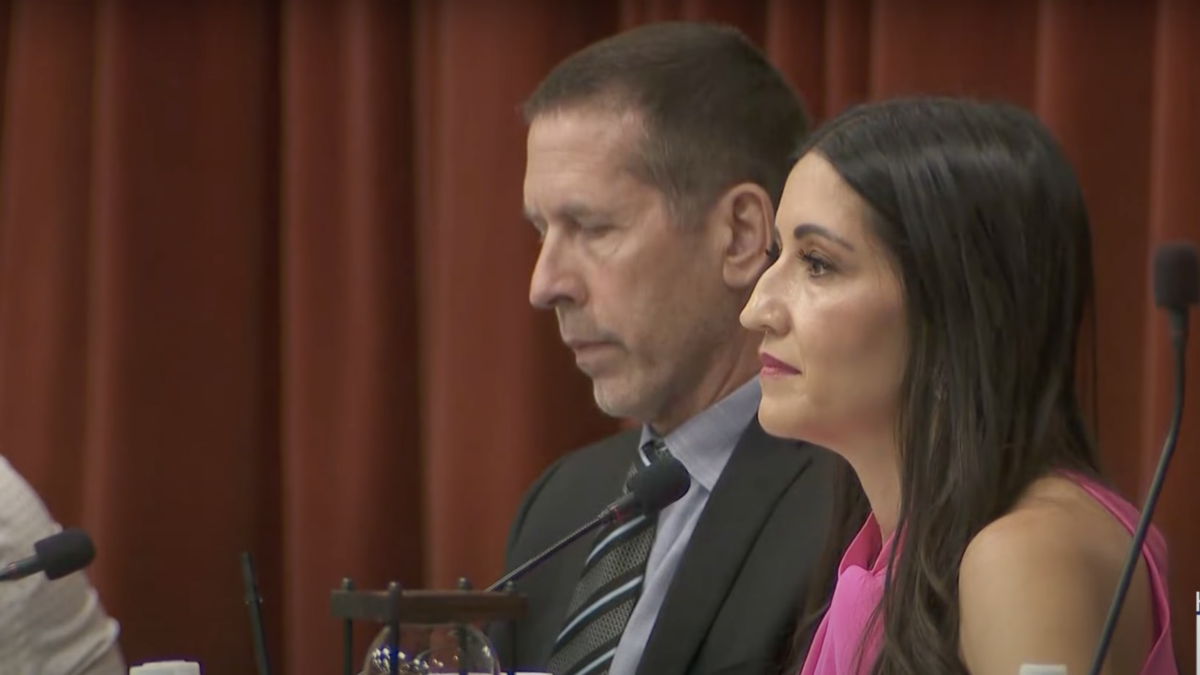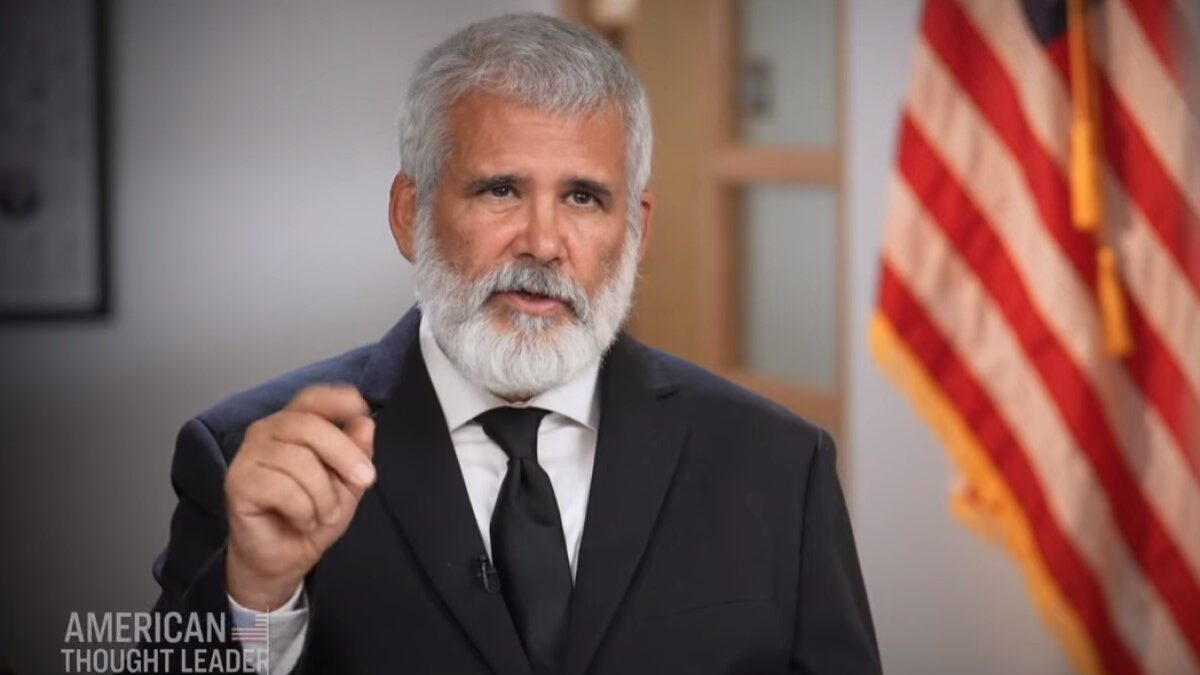In January, Democrat Rep. Sheila Jackson Lee introduced the Leading Against White Supremacy Act of 2023. The bill is one of the most radical, unconstitutional pieces of legislation proposed in years.
The Leading Against White Supremacy Act aims to “prevent and prosecute white supremacy inspired hate crime and conspiracy to commit white supremacy inspired hate crime and to amend title 18, United States Code, to expand the scope of hate crimes.”
Under the proposed bill, “A person engages in a white supremacy inspired hate crime when white supremacy ideology has motivated the planning, development, preparation, or perpetration of actions that constituted a crime or were undertaken in furtherance of activity that, if effectuated, would have constituted a crime.”
In other words, Jackson Lee’s legislation would make any crime or an attempt to commit a crime that is arguably “motivated” by white supremacy ideology a hate crime, which would carry with it a harsher penalty than other crimes not motivated by “hate.”
On its own, this provision is extremely problematic. Although ideological views that are truly rooted in white supremacy are undeniably repugnant, Jackson Lee offers no definition of “white supremacy ideology” in the bill, opening the door to wild interpretations that could unjustly increase legal punishments for defendants in court.
Jackson Lee’s legislation doesn’t stop there, however. The most important part of the legislation is its “conspiracy” provision, which would make it illegal to “publish” material that inspires a crime deemed to be motivated by white supremacy — which, again, is not defined by the bill. The legislation specifically lists “social media platforms” as a form of publication.
According to the provisions in Jackson Lee’s bill, if a social media user were to post an article, video, or even just a short message on a website such as Facebook or Twitter, that person could be convicted of committing “a conspiracy to engage in white supremacy inspired hate crime” if someone else consumes that material and then commits a crime motivated by white supremacy.
It doesn’t appear to matter how crazy or mentally ill the person committing the crime is, either. So, under the bill, if a deranged mass shooter allegedly inspired by white supremacy TikTok videos and Facebook posts kills several people, any of the “white supremacy” materials “read, heard, or viewed” by the shooter could make the person who posted those materials guilty of conspiracy.
Some might be tempted to think this would only apply to the most extreme ideological and political views about white supremacy, but recent history has shown that many on the left have a far-reaching, extremely broad understanding of “white supremacy.”
For example, the National Education Association, America’s largest teachers union, claims that although “white supremacy culture” is typically “associated with violence perpetrated by the KKK and other white supremacist groups, it also describes a political ideology and systemic oppression that perpetuates and maintains the social, political, historical and/or industrial white domination.” The NEA further claims, “Organizations that are led by people of color or have a majority of people of color can also demonstrate characteristics of White Supremacy Culture.”
Popular left-wing publications such as The Intercept have suggested that “prominent conservatives” including Ben Shapiro, Tucker Carlson, Laura Ingraham, Donald Trump, and Candace Owens propagate white supremacist ideology. Whistleblower documents reveal Google’s “anti-racism” initiative for the company’s employees featured a “White Supremacy Pyramid” that includes both Shapiro and Trump.
In November, ABC News published an article alleging that the “GOP’s white supremacist problems extend beyond Trump.” One columnist for The Hill claimed in November that “Republican officials keep stoking white supremacist tropes.”
Further, a long list of academics including Ruth Colker, a law professor at Ohio State University, has even called America’s founding document “The White Supremacist Constitution.” According to Colker, “The United States Constitution is a document that, during every era, has helped further white supremacy.”
With all of this in mind, it’s not hard to imagine how under the Leading Against White Supremacy Act, a Trump-supporting Republican expressing support for the Constitution on Twitter — a description that fits millions of Americans — could easily be caught up in a charge of “conspiracy to engage in white supremacy inspired hate crime.”
But as nutty as all of this is, Jackson Lee has somehow managed to go even further. Among the relevant kinds of “published material” covered under the Leading Against White Supremacy Act is “hate speech that vilifies or is otherwise directed against any non-White person or group.”
What exactly is “hate speech”? Jackson Lee’s bill doesn’t tell us. Perhaps political commentators writing an article such as this one, which arguably “vilifies” a “non-White person,” could someday find themselves guilty of conspiracy to engage in a white supremacy-inspired hate crime.
The purpose of Jackson Lee’s legislation is not to discourage white supremacy, a noble goal. It’s a blatantly unconstitutional, racist attempt to silence political and social speech.









